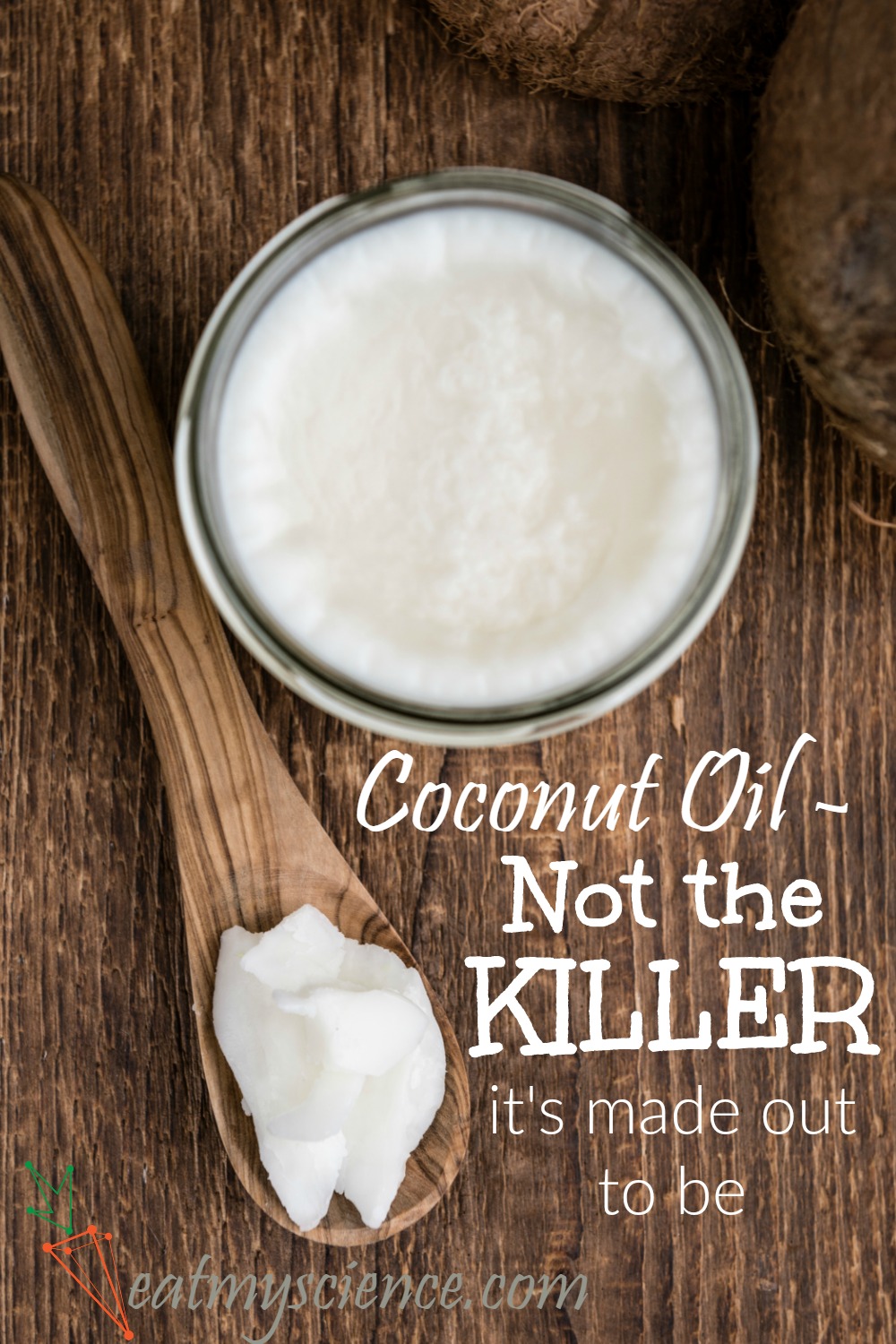Last week, coconut oil was still enjoying it’s 15 minutes of fame with articles like “10 Impressive Health Benefits of Coconut Oil” and “Eat 2 Tablespoons of Coconut Oil Daily for These Amazing Health Benefits!”
Then, ‘big coconut’ was blindsided when the American Heart Association dug up its shady past. Now the tabloids read “Coconut Oil Isn’t Healthy. It’s Never Been Healthy,” and “Coconut Oil ‘As Unhealthy as Beef Fat and Butter’.”
This massive swing in public opinion based on half-truths and incomplete science is precisely the reason I started this website.
I’m sick of the whiplash.

The truth is, coconut oil is the same as it was last week, the same as 100 years past, and pretty close to the same as it was 15 million years ago.
So, calm the ‘f’ down, as Love Barret suggests. The science on the benefits of coconut oil is still legit.
And it’s worth looking at the entire body of evidence to find the whole truth and nothing but the truth about coconut oil. We’ve kind of been ignoring the silky concoction’s not-so-healthy attributes.
So, is coconut oil really as “bad” as beef fat and butter?
Short answer: It’s not. 100 times it’s not. That’s like saying a non-profit lawyer who works for orphans is as bad as a criminal defense lawyer. I mean, in the end, they’re both lawyers. But at least the non-profit lawyer does some good stuff too.
No offense to lawyers.
Then how can a trusted source like the American Heart Association make that claim?
The American Heart Association has a specific focus – heart health. And they’ve got some impressive research to back up what they say – you’ve read about this in “Why Heart Disease is the #1 Killer and What You Can Do About It.”
Research shows that saturated fats like animal fats or coconut oil generally raise the bad cholesterol in the blood. The science proves true regardless of source – coconut oil doesn’t get a lighter sentence for good behavior – at least not when it comes to heart health.
But seriously, why are saturated fats so bad?
First off – saturated fats aren’t bad – they’re just drawn that way. Really, food is not “good” or “bad,” it just, is. Chocolate is delicious to us, poisonous for dogs. The level of “goodness” of any particular food is relative.
Is a fried potato healthy when compared to kale? No, certainly not. Is a fried potato healthy compared to a ding dong? Yes, it certainly is. Is a potato fried in olive oil more healthy than a potato fried in coconut oil?
It depends.
Here’s a crash course in Saturated Fats
So, Saturated Fat and Unsaturated Fat walk into a bar called The Cell. They each order a drink. Saturated Fat, SF, has cash, so they pay for their drink and give a $2 tip. Unsaturated Fat, UF, has a debit card, so they open a tab.
SF is an easy customer – they pay upfront and tip every time, the bartender doesn’t have to think about the transaction too much.
UF requires a little more attention – the bartender has to keep track of the card and the number of drinks ordered.
At the end of the night, UF settles his tab. After 3 drinks, he tips $4.
The bartender made 3 drinks for SF and received $6 in tips.
This sounds more like math than science, doesn’t it?
But this is how it works in the body.
Saturated fats are easy to convert to usable energy, so the cell gets more calories out of saturated fats, and more quickly. Like $6 before the last drink is even gone.
Unsaturated fats are harder to break down, so they take longer and don’t give the body as much energy in the end. Like only $4 and it takes more work.
When it comes down to it, if tomorrow was the apocalypse and the only things left in your pantry were olive oil and coconut oil, your body would live longer on coconut oil than the olive oil.
If, however, you follow the Standard American Diet and you are constantly overeating (without even knowing it), adding coconut oil to your coffee or cooking with it will give you more calories than you need.
This is why in studies, eating more saturated fat raises blood cholesterol levels more than unsaturated fat. If you eat mostly saturated fats, there will be more left over to spill into your blood.
When it comes to the heart, overeating in general, including either type of fat, will contribute to higher cholesterol levels.
So don’t throw out your expensive jar of coconut oil just yet. You can still use coconut oil in all kinds of healthy ways, but you’ll want to do more research before you decide to swap out your other oils for coconut oil. For some people, the scientifically proven health benefits of coconut oil may be outweighed by the increased risk of heart disease.
Only you can decide if coconut oil is right for you. But at least you know why these oxymoronic headlines are crowding your news feed.
Personally, I won’t be melting spoonfuls of coconut oil in my coffee anytime soon.
Thanks for the article! Coconut oil truly has a bounty of benefits, as outlined by this informative article – http://organicdailypost.com/10-benefits-of-coconut-oil-you-may-not-be-aware-of/
Big business has everything to do with these reports. Margarine and vegetable oil over coconut?! I don’t think so! The sad thing is how many people won’t know any better. I’m a victim of the standard American diet, and now, even despite knowing better, it’s hard to stop by bad eating habits in their tracks. Thanks for helping to educate people!
It’s just like all the other stuff they said was bad for us like butter and eggs. It’s like a merry go round from day to day. I think big business has a lot to do with these reports.